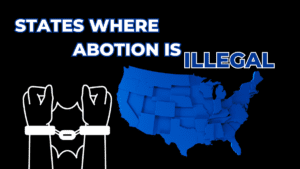Have you ever received a call from an unfamiliar area code and wondered whether to answer or hit the decline button? While many calls can be harmless, some area codes are notorious for being associated with scams and shady practices. Knowing which area codes to avoid could save you time, money, and frustration. In this post, we’ll explore five area codes you should never answer. Let’s dive in!
What Are Phone Scams and How Have They Changed?
Phone scams have evolved significantly over the years. Originally, scammers relied on 900 numbers, notorious for their association with premium-rate calls. Once the public became aware of these schemes, fraudsters adapted their tactics to be more deceptive. Today, scammers use a variety of area codes, often masking their true location or pretending to be from domestic numbers to trick unsuspecting individuals.
One common tactic is the “one-ring scam,” where the scammer disconnects the call after just one ring. This tactic is designed to pique curiosity, prompting recipients to call back. However, returning such calls can result in hefty international charges, as these area codes may belong to foreign countries. Understanding these evolving methods is crucial for protecting yourself from becoming a victim of phone fraud.
Why Certain Area Codes Should Raise Red Flags
Area codes can reveal a lot about the origin of a call. Some numbers, however, are notorious for being associated with scams and fraud.
When you see an unfamiliar area code, it’s wise to be cautious. Calls from certain regions often have a reputation for questionable practices. This is especially true if they originate from overseas or less regulated countries.
Scammers frequently use these area codes to mislead unsuspecting victims. They may employ tactics like pretending to be from legitimate organizations or offering irresistible deals that lead nowhere good.
Being aware of which area codes raise red flags can save you time and money. It’s always better to err on the side of caution when your phone rings with an unknown number.
Five Area Codes to Watch Out For International Scam
Many scam calls come from international numbers disguised as domestic ones. These area codes often belong to small island nations or remote regions, making it easy for scammers to operate undetected. If you unknowingly call back, you may be charged hefty per-minute fees for the duration of the call. Some of the most notorious international area codes to avoid include:
- 268 – Antigua and Barbuda
- 473 – Grenada, Carriacou, and Petite Martinique
- 649 – Turks and Caicos Islands
- 876 – Jamaica
Scammers rely on the victim’s unfamiliarity with these international codes, hoping they will think it’s a legitimate call from a U.S. number. Falling for such scams can lead to expensive phone bills, with charges for “premium services” that were never actually used.
U.S. Area Codes Linked to Phone Scams
While many scam calls originate from international numbers, there are also certain U.S. area codes associated with fraudulent activities. Scammers are increasingly using domestic area codes to appear more legitimate. These calls often involve robocalling, offering fake prizes, or claiming urgent action is needed for legal or financial matters. Some of the U.S. area codes frequently linked to scams include:
- 347 – New York City
- 469 – Dallas, Texas
- 216 – Cleveland, Ohio
- 657 – La Palma, California
These area codes are used by scammers to trick recipients into thinking the call is from a local or reputable source. Even though the area code might seem familiar, the call could be part of a scam attempting to extract personal information or money.
How to Protect Yourself from Scam Calls
Avoiding scam calls can be challenging, but there are several effective ways to protect yourself. First, don’t answer calls from unfamiliar numbers, especially if they come from area codes you don’t recognize. Scammers often rely on curiosity to get you to pick up or call back. Additionally, if you receive a one-ring call, resist the temptation to return it—this could be an expensive mistake.
Here are a few more tips to safeguard yourself:
- Research unfamiliar area codes before calling back. Many online resources can help you identify whether a number is linked to scams.
- Consider blocking international numbers if you rarely make international calls. Most phone companies offer services to block such calls, preventing accidental dial-backs to scam numbers.
- Report suspicious calls to the Federal Trade Commission (FTC) if you think you’ve been targeted by a scam. They can help trace the source and prevent future scams.
By staying vigilant and informed, you can reduce your risk of falling victim to phone scams.
The Real Consequences of Phone Scams
Unfortunately, phone scams can have devastating real-life consequences, particularly for vulnerable individuals. Many scammers target the elderly, knowing they may be more trusting and less familiar with digital security. In some tragic cases, victims lose significant amounts of money to these scams, leaving them unable to afford basic needs like healthcare.
For example, there have been instances where elderly individuals lost their savings to phone scams, making it impossible for them to pay for critical medical treatments. One heartbreaking case involved an elderly man who fell victim to a scam that drained his bank account. Unable to cover his medical bills for a life-saving surgery, he passed away due to lack of treatment. This example highlights how these fraudulent schemes can go beyond financial harm and lead to fatal consequences.
This is why it’s crucial to recognize the signs of a scam and protect yourself and your loved ones from falling prey to such tactics. By staying informed and cautious, we can help prevent these tragic outcomes.
Frequently Asked Questions (FAQ) – Five Area Codes You Should Never Answer
What are the most common area codes used in phone scams?
Common international area codes used in scams include 268 (Antigua and Barbuda), 473 (Grenada), 649 (Turks and Caicos), and 876 (Jamaica). In the U.S., area codes like 347 (New York City), 469 (Dallas, Texas), and 216 (Cleveland, Ohio) have been linked to fraudulent calls.
How do scammers trick people using these area codes?
Scammers use a variety of tactics such as the “one-ring scam,” where they call and hang up after one ring, prompting you to call back. These numbers may lead to international lines that charge high fees per minute, leading to costly phone bills. Other tactics include robocalls and fake prize notifications.
How can I avoid falling victim to a phone scam?
To avoid scams, do not answer or return calls from unfamiliar numbers. Always research the area code if you don’t recognize it, especially if it’s international. You can also block international calls with your phone provider, and be cautious even if the number appears legitimate.
What should I do if I suspect a scam call?
If you suspect a scam call, do not engage with the caller or return the call. Instead, report the incident to the Federal Trade Commission (FTC) or your local authorities. You can file a complaint with the FTC at their website.
Can phone scams have serious financial or health consequences?
Yes, phone scams can have devastating consequences, especially for the elderly and vulnerable individuals. Some victims have lost significant sums of money, which, in extreme cases, prevented them from paying for essential healthcare, leading to severe health outcomes or even death.
How can you tell if a number is from a scammer?
Below are common warning signs of a phone scam:
- A claim that you have been specially selected or won a prize.
- The use of high-pressure sales tactics and “limited-time” offers to push you into a quick decision.
- Reluctance to answer questions about the business or offer, or providing vague information.
- A request to “confirm your personal information,” such as your Social Security number, bank details, or passwords.
- The call comes from an unfamiliar or strange-looking number, such as one with an odd area code or a series of repeating digits (e.g., 111-111-1111).
Always be cautious and never provide personal details over the phone unless you’re sure it’s a legitimate call.
What happens if you call back a spam number?
By calling back a spam number, you could expose yourself to additional scam calls or even more sophisticated scams like AI voice scams. Scammers may record your voice during the call and use it to impersonate you, potentially gaining access to your personal accounts or money. Additionally, returning a call to an international scam number can result in expensive per-minute fees.




